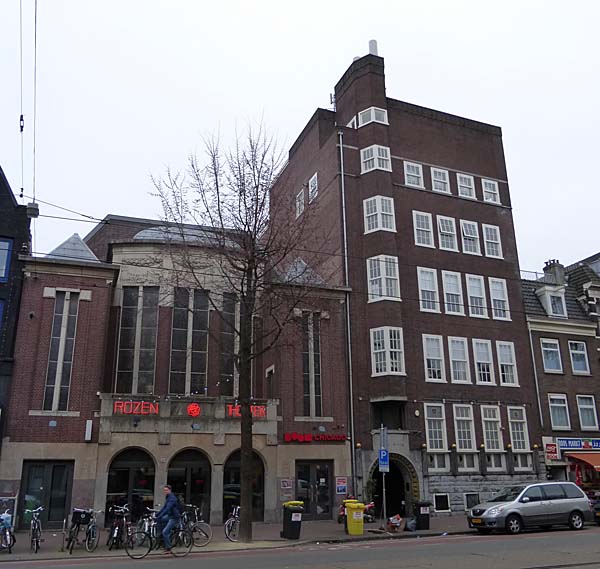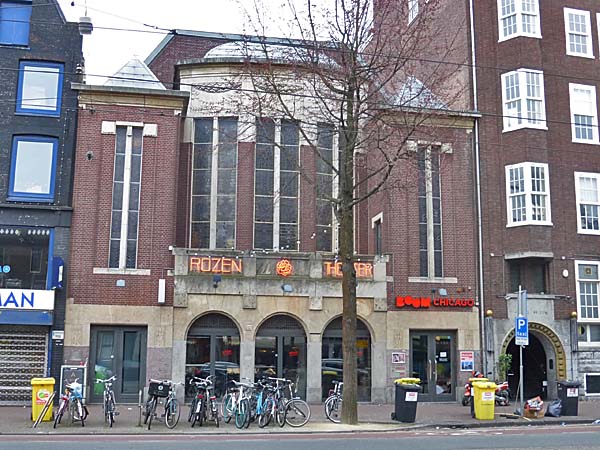The Rozen Theatre opened
as a cinema in March of 1913. A
photograph of the interior published in the
book ‘Saturday Night At The Movies’- Part 1'
by Richard van Bueren, shows Art Nouveau
stencil patterns on the side walls and
around the proscenium. 13 years later
the theatre reopened as the Asta Theatre
which was also a cinema, but by 1933 it was
staging French Revue live
performances. Following the German
invasion of 1940, the theatre was initially
closed but then reopened. Live shows
continued to be staged after the war, but
that came to a end in 1948 when it once
again became a cinema called the
Capitol. One more name change happened
in 1971, when it reverted to its original
name, the Rozen Theatre. The rose
theme of the building is reflected in the
stain glass that you can see on the facade.

In 2004 the Dutch
architectural practice Macanoo completed a
renovation of the building. On their
website they explain that, "Over the
years, most of the building’s clear
layout disappeared as the main public
spaces were divided into separate rooms
and corridors. Mecanoo’s new design
continues the tradition of this
monumental building as a place of
experiment and entertainment for a
youthful audience. All public
spaces such as the main theatre and
foyer are furnished with new materials
in bold colours. Fashioned from
recycled plastic, the bar stands in
front of a red acrylic wall whose colour
and texture recall a sea of roses as a
nod to the name of the theatre. .... In
the main theatre, the colour palette on
the walls progresses from light pink to
dark purple. A black box theatre
was created in the old cinema by
flattening the floor. A moveable
tribune, seating 190, enables various
configurations to suit changing needs."



